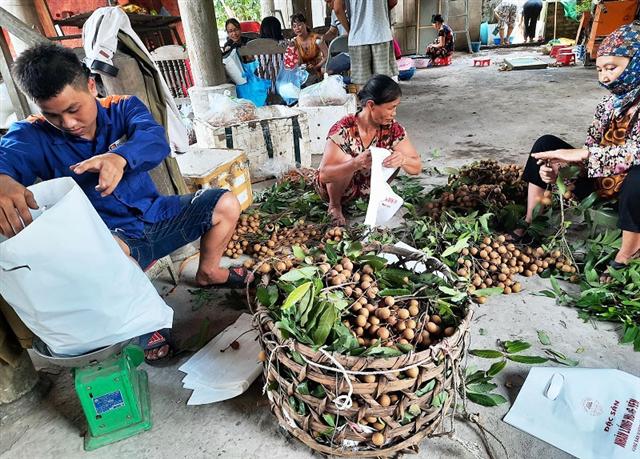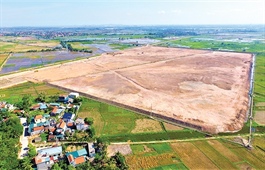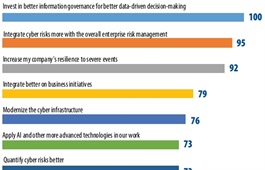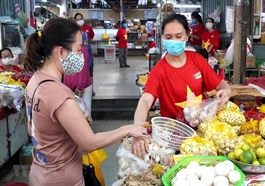Enterprises reach out for assistance
Enterprises reach out for assistance
Facing massive difficulties, many enterprises suffering from stalled production are waiting for government-led policies to go further into the business community, making it more favourable to boost economic growth.

Enterprises reach out for assistance, photo Thanh Tung
|
Do The Tac, 55, has been operating The Tac Agri Trade Co., Ltd. for 10 years in Khoai Chau district in the northern province of Hung Yen. Every year, the company of 25 employees has earned revenues of about $500,000 from selling fruit, which were exported to China and other regions.
“However, the sum has been slashed by half now as we cannot sell goods. The pandemic is making the public tighten their belt,” Tac told VIR. “We have had to self-process the fruit into small packs and are finding new outlets.”
Dong Ket has over 3,000 hectares of longan. However, thousands of tonnes of the fruit have not been consumed, while farmer households have invested a huge sum of money and great labour into the farms. Many households and small-scale companies like The Tac Agri Trade have faced bankruptcy as many of them have big loans from banks.
“We have met with banks to ask for extension of loan payments, but it has been quite a hard job. Banks also need money to keep operations,” Tac said. “We even want to seek loans from the Vietnam Bank for Social Policies (VBSP), but it is impossible.”
VBSP, established in 2002 to deploy preferential credit policies for the poor and other policy beneficiaries, has been offering a VND16 trillion ($695.65 million) credit package to businesses seeking preferential loans at a zero per cent lending rate in order to pay salaries for their employees.
However, the loans, featuring the government’s efforts to support enterprises during COVID-19, may be never reached by borrowers as the loaning conditions are a tough nut to crack.
To obtain such a loan, a business has to have 20 per cent or at least 30 employees with social insurance who were forced to halt employment between April 1 and June 30. The time of layoff must have been at least one continuous month, and the employer has paid in advance at least 50 per cent of salaries.
Also, the employer must be facing financial difficulties and cannot pay salaries, and must have had no bad debt at credit institutions and foreign banks by December 31, 2019.
If the borrower can meet all of these conditions, he must submit a loan proposal to the district-level people’s committee where the enterprise and the bank’s branch are located. Within three working days, the committee must appraise the proposal and then submit it to the chairperson of the provincial-level people’s committee. Within two working days, the chairperson must issue a decision on adopting the proposal, and send it to the VBSP branch which will process final procedures to provide the loan for the enterprise.
“The procedures and conditions are quite hard, and we will never be able to reach such a loan,” Tac said.
Over the past few months, the government has been deploying some sturdy measures to support enterprises. Specifically, the State Bank of Vietnam has been implementing a package worth over VND300 trillion ($13 billion) for enterprises and households, in the form of debt payment deferral and preferential loans.
The Ministry of Finance has also been deploying a VND180 trillion ($7.82 billion) package to support these people and enterprises. The government has also been carrying out a VND62 trillion ($2.7 billion) package to support 20 million poor and unemployed people.
A recent survey by the General Statistics Office showed that COVID-19 has had negative impacts on 85.7 per cent of enterprises and nearly 20 per cent of them have had to halt operations. There will be over 160,000 enterprises halting operations if COVID-19 lasts throughout the third quarter of the year, and the figure will be 205,000 if the pandemic lasts into the fourth quarter.
The United Nations Development Programme (UNDP) has just released results of a May telephone survey over 930 vulnerable households, and 935 vulnerable household businesses (HBs), and micro-, small-, and medium-sized enterprises (MSMEs) in 58 cities and provinces across Vietnam.
The surveyed HBs and MSMEs suffered from a sharp reduction of revenues as COVID-19 caused a scaling-down of business activities. On average, as compared to the December 2019 level, MSMEs suffered a 78 per cent reduction in revenue in April, while HBs faced a deeper decrease by 83 per cent. Notably, firms surveyed said they have faced difficulties in accessing government support.
“The government should provide concrete guidelines of the beneficiary definition and requirements and allow digital technology to be used for applications. In this way, the affected firms can identify whether they fit in the beneficiary list and register for support,” said the UNDP report.
National Assembly deputy Nguyen Sy Cuong, representing the south-central province of Ninh Thuan, proposed that the government “pay special attention to how its policies to assist enterprises are being materialised.”
“For example, the VND62 trillion ($2.7 billion) package is facing difficulties in disbursement, while the VND16 trillion ($695.65 million) from VBSP have yet to be disbursed. The bank reported that it has yet to receive any loan proposal from any enterprise,” Cuong said.



























